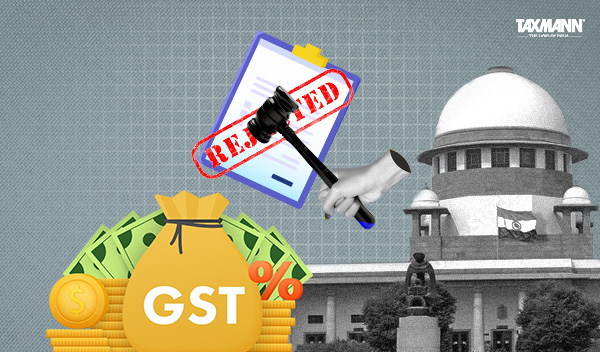Writ Not Maintainable Where GST Demand Involves Factual Disputes | HC
- Blog|News|GST & Customs|
- 2 Min Read
- By Taxmann
- |
- Last Updated on 10 June, 2025

Case Details: Infiniti Retail Ltd. vs. Union of India - [2025] 174 taxmann.com 1097 (Delhi)
Judiciary and Counsel Details
- Pratibha M. Singh & Rajneesh Kumar Gupta, JJ.
-
Prakash Shah, Sr. Adv., Rajat Mittal, Mohit Rawal, Mihir Mehta & Suprateek Neogi, Advs. for the Petitioner.
-
Anurag Ojha, SSC, Dipak Raj, Ms Garima Kumar & Deep Raj, Advs. for the Respondent.
Facts of the Case
The petitioner was subjected to a demand under Section 74 of the CGST and Delhi GST Act, 2017, primarily on the allegation of wrongful availment of input tax credit (ITC). The petitioner had earlier approached the Delhi High Court by way of a writ petition, which was disposed with directions to the adjudicating authority to independently examine the petitioner’s reply and not merely rely upon the audit memo or audit report. Subsequently, an adjudication order was passed.
The petitioner contended that the said order was passed in complete disregard of the High Court’s earlier directions and that the reply submitted in response to the show cause notice (SCN) had not been meaningfully considered. It was submitted that the order merely reiterated the contents of the SCN, summarised the petitioner’s reply without actual engagement, and mechanically confirmed the demand. The petitioner, therefore, once again approached the Delhi High Court challenging the impugned order by way of a writ petition.
High Court Held
The Delhi High Court held that although the directions issued in the earlier writ petition were not followed in letter and spirit, the impugned adjudication order appeared to have been based primarily on the SCN and returns filed by the petitioner. It was observed that while the reply submitted by the petitioner was extracted and oral submissions were recorded, the adjudication order lacked any clear explanation as to how those submissions were considered while finalising the demand.
A substantial part of the demand related to the erroneous classification of ITC—CGST and SGST instead of IGST—while the remaining issues pertained to factual determinations based on the petitioner’s returns. The Court concluded that since the validity of these demands hinged on disputed facts and examination of multiple documents, the matter exceeded the permissible scope of writ jurisdiction. Accordingly, the petitioner was directed to pursue the remedy of appeal under the statutory framework.
List of Cases Referred to
- Infiniti Retail Limited v. Union of India [ W.P.(C) No. 12459 of 2024, dated 10-9-2024] (para 4).
Disclaimer: The content/information published on the website is only for general information of the user and shall not be construed as legal advice. While the Taxmann has exercised reasonable efforts to ensure the veracity of information/content published, Taxmann shall be under no liability in any manner whatsoever for incorrect information, if any.

Taxmann Publications has a dedicated in-house Research & Editorial Team. This team consists of a team of Chartered Accountants, Company Secretaries, and Lawyers. This team works under the guidance and supervision of editor-in-chief Mr Rakesh Bhargava.
The Research and Editorial Team is responsible for developing reliable and accurate content for the readers. The team follows the six-sigma approach to achieve the benchmark of zero error in its publications and research platforms. The team ensures that the following publication guidelines are thoroughly followed while developing the content:
- The statutory material is obtained only from the authorized and reliable sources
- All the latest developments in the judicial and legislative fields are covered
- Prepare the analytical write-ups on current, controversial, and important issues to help the readers to understand the concept and its implications
- Every content published by Taxmann is complete, accurate and lucid
- All evidence-based statements are supported with proper reference to Section, Circular No., Notification No. or citations
- The golden rules of grammar, style and consistency are thoroughly followed
- Font and size that’s easy to read and remain consistent across all imprint and digital publications are applied



 CA | CS | CMA
CA | CS | CMA
